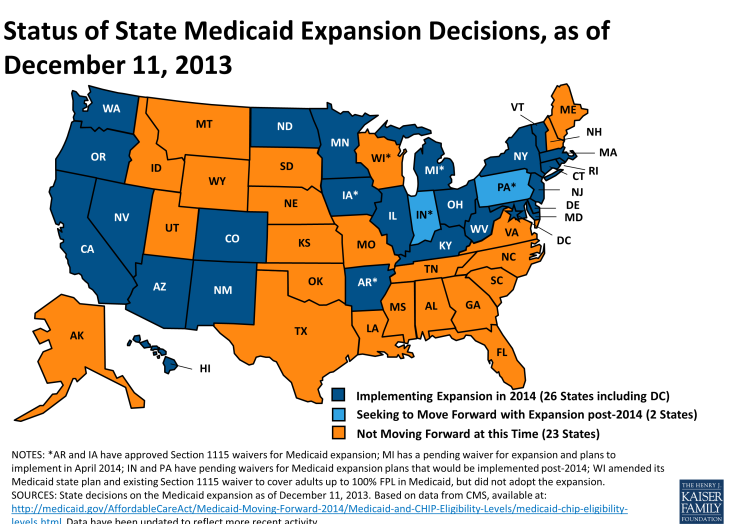Medicaid Expansion/Lack of Expansion Plans: In A Map
For anyone interested in health policy, Sarah Kliff at the Washington Post has perhaps the most useful and informative blog to be found. Here’s a picture she posted recently, showing the status of state Medicaid programs, in a post exploring which states she expects to be revisiting their decisions about how, or whether, to expand in accordance with the Affordable Care Act.

In so many ways, The Affordable Care Act is still a work in progress. On the downside, that forces me to revise my syllabus every year, for my health policy class. On the upside, it keeps things interesting!

